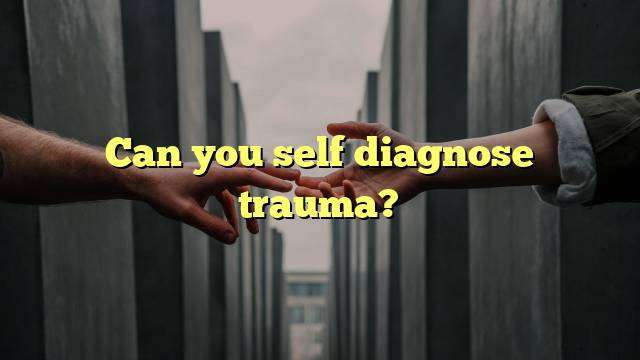Can You Self-Diagnose Trauma?
Trauma is a difficult reality for many individuals, and they may not know where to turn for help. Self-diagnosis of trauma can be a difficult and dangerous process. But with the right resources and guidance, it can be a valuable tool in helping individuals identify and address their trauma.
What is Trauma?
Trauma is an emotional response to a traumatic event. It can be triggered by a one-time event or a series of events, such as a natural disaster, a serious accident, war, domestic violence, or sexual assault. It can also be caused by a long-term, ongoing situation, such as living in a hostile environment or being chronically ill. Trauma can leave individuals feeling scared, helpless, and overwhelmed.
Signs and Symptoms of Trauma
Everyone responds to trauma differently, but there are some signs and symptoms that are common in individuals who have experienced trauma. These include:
- Flashbacks or nightmares
- Difficulty sleeping
- Avoiding activities or people that remind you of the traumatic event
- Feelings of guilt or shame
- Difficulty concentrating
- Feeling jumpy or easily startled
- Anger or irritability
- Depression or anxiety
Self-Diagnosis of Trauma
Self-diagnosis of trauma can be a dangerous process. It’s important to remember that only a mental health professional can make an accurate diagnosis. However, there are some self-assessments that can help individuals become more aware of their symptoms.
Online Tests
There are a number of online tests for trauma that can help individuals gain insight into their symptoms. These tests are not designed to replace professional diagnosis, but they can be a useful tool in helping individuals identify and understand their symptoms. It’s important to remember that these tests are not 100% accurate and should not be used as a replacement for professional diagnosis.
Professional Diagnosis
If you believe you may be suffering from trauma, it’s important to seek professional help. A mental health professional can provide an accurate diagnosis and develop a treatment plan that is tailored to your needs. Treatment for trauma can include counseling, medications, and other forms of therapy.
Self-Care
It’s important to take care of yourself if you are struggling with trauma. This can include:
- Engaging in physical activity
- Spending time with supportive friends and family
- Prioritizing healthy eating habits
- Creating a regular sleep schedule
- Practicing relaxation techniques such as deep breathing or meditation
Self-care is an important part of managing and recovering from trauma.
Conclusion
Self-diagnosis of trauma can be a dangerous process. However, with the right resources and guidance, it can be a valuable tool in helping individuals identify and address their trauma. It’s important to remember that only a mental health professional can make an accurate diagnosis. In addition to seeking professional help, self-care is an important part of managing and recovering from trauma.


